Three years ago, China and Israel reached a milestone in infrastructure cooperation. A deal was signed to allow a Chinese company to run Israel’s largest port city – Haifa – for 25 years starting from 2021. The Shanghai International Port (Group) Co Ltd (SIPG) won the bid to build the new port which will be able to handle 1.86 million standard containers, making it the largest harbor in Israel.
Israeli Transport and Intelligence Minister Yisrael Katz said – “The Chinese firm is bringing its capabilities to the port’s development, and it will of course strengthen the relations between China and Israel. And I am happy for that.” Of course, when the deal was inked in 2015, Obama was on good term with Beijing and nobody had expected Donald Trump would become the next U.S. president.
When China acquires the Israel port, the business deal was done under the pretext of the kingdom’s desire to maintain a trade route from the Indian Ocean via the Suez Canal to Europe. Today, the Americans think Israel had lost their mind for giving the Chinese the keys to Haifa Port. China appears to have struck gold with its US$2 billion investment in the Israel port.
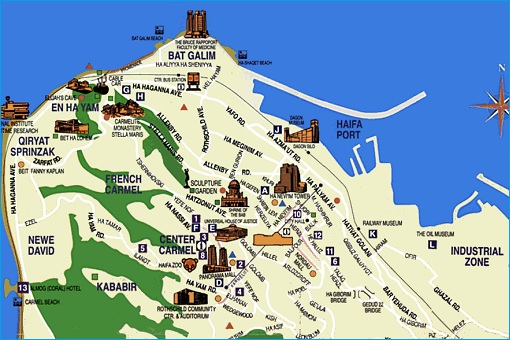
Although Haifa is a civilian port, the nation’s largest port city also regularly hosts joint US-Israeli naval drills and visits from American vessels. Suddenly, the agreement granting SIPG control over the port for 25 years has raised intelligence and security concerns, thanks largely to the trade war between the U.S. and China, which escalates a few notches after the arrest of Huawei’s CFO Sabrina Meng.
According to sources, U.S and Israel worry that sensitive infrastructure matters have not been properly vetted by Israel’s full national security cabinet prior to approval. Interestingly, Yisrael Katz, the minister who signed off the deal on behalf of Israel, was serving as transportation minister at the time and has remained in the same position since. He also sits in the national security cabinet.
It’s not hard to understand why the U.S. is concerned with the China-Israel deal. When Beijing eventually takes over the Haifa Port, the Chinese operators will be able to monitor closely U.S. ship movements, be aware of maintenance activity and could have access to equipment moving to and from repair sites and interact freely with Israeli crews.
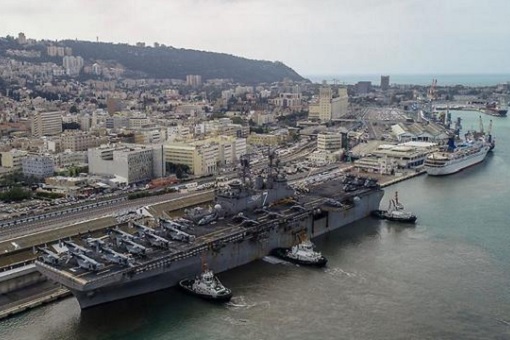
The information systems and the electronic surveillance systems which would ultimately become the integral parts of the ports could jeopardise U.S. information and cybersecurity. Another issue that has gotten the U.S. security team scratching their head in disbelief of the port deal was the fact that the Haifa Port is not far from an Israeli Navy base where they maintain its fleet of submarines.
According to Arthur Herman, a senior fellow with the Hudson Institute in Washington, Beijing has a “keen interest in establishing a strategic foothold in the eastern Mediterranean through the port of Haifa.” He said – “With the decline of the U.S. Sixth Fleet in the eastern Mediterranean, U.S. strategic interests have depended more and more on cooperation with Israel’s navy.”
Headquartered in Naples, Italy, the U.S. 6th Fleet is America’s sea arm in European waters. But since the end of the Cold War, the importance and size of the fleet has diminished. Instead, the Russia’s navy has become more active in the region recently, due in part to its involvement in the Syrian Civil War and Kremlin’s use of the naval base at Tartus, Syria.
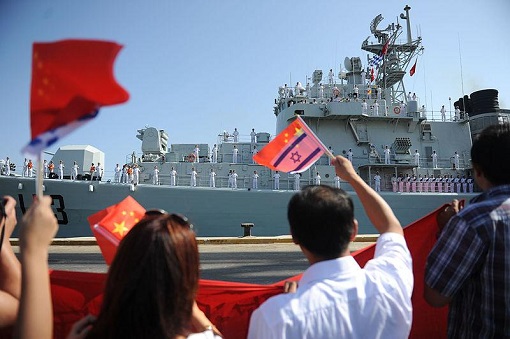
It appears that not even Israel can escape the claw of China’s influence as its “One Road, One Belt” tentacles spread across the globe. Like other nations, Israel was hungry for upgrades in its transportation infrastructure too, so much so that it might have given security risks a miss. But Haifa isn’t the only Israeli port to be taken over by the Chinese.
A separate Chinese firm, China Harbour Engineering Company, was awarded a contract to construct a US$1 billion new port in the southern Israeli city of Ashdod – the first private port to be developed under the Israeli’s port reforms. Other mega Israeli infrastructure deals involving Chinese include projects such as the Mount Carmel tunnels and the light-rail train in Tel Aviv.
However, China has not demonstrated its hostility towards Israel, nor was there any proof that such investments could jeopardise Israeli’s national security. China is acquiring vast influence over essential infrastructures in Israel to protect its economic interests in the region. The ports probably provide assurance of continuous supply of crude oil, especially from Iran.
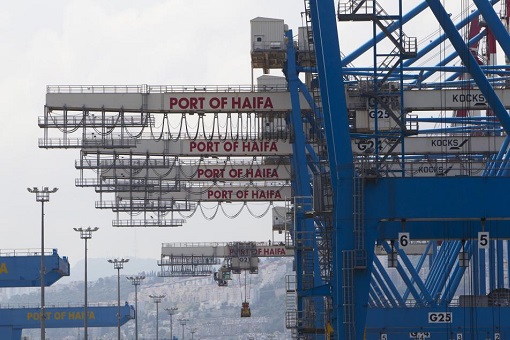
But such infrastructure investments could easily be used by rivals such as the U.S., which is engaging trade war with China currently, to create suspicions that it could open the door to Chinese spying and expanding influence of Israeli’s security services. President Trump has ratcheted up his rhetoric over China’s threat to American business and interests at home and overseas.
Still, the commercial contract for the Haifa port would theoretically give the Chinese military a usable facility in the Mediterranean. The deal could affect the relationship between the U.S. and the IDF because it would be awkward for the U.S. warships to dock at the same port being managed by enemy China, knowing very well that the Chinese would be monitoring them.
The U.S. Navy may decide to stop docking in Israeli’s port of Haifa after Chinese take over the port in 2021. But the situation could change if Trump decides not to seek re-election, or lose in his 2020 attempt. Commander Kyle Raines of the Sixth Fleet said – “For now, there are no changes to our operations in Israel. I can’t speculate on what might or might not occur in 2021.”
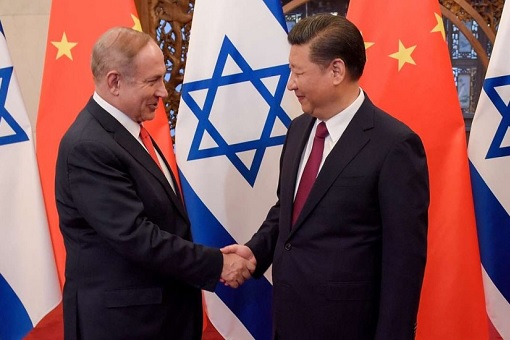
Other Articles That May Interest You …
- President Trump’s Trade War Strategy Against China Isn’t Working – It Gets Worse!!
- From Trade War To Political Kidnapping – Two Canadians Held “Hostage” As China Retaliates
- Trump Has 2 Ways To Stop China From Becoming A Global Leader In Technology
- Sending A Message To China – Here’s Why Mahathir’s Visit To Japan Is A Brilliant Strategy
- Vanuatu Military Base – Australia Panic As China Secretly Militarizing Its Backyard
- Chinese Flag Raised At Sri Lanka Port Raises Concern Of China Secret Naval Base
- Invasion Of China Empire – They’re Now Targeting European, Especially Financial Powerhouse
- Forget South China Sea, China Is Dominating Indian Ocean – And India Isn’t Happy
- India Boycotts $100 Billion OBOR – Sees Through China’s Territorial Ambitions
- China Invasion – Top 10 American Iconic Brands Now Owned By Chinese

|
|
December 18th, 2018 by financetwitter
|


|

|

|

|

|

|




























Comments
Add your comment now.
Leave a Reply